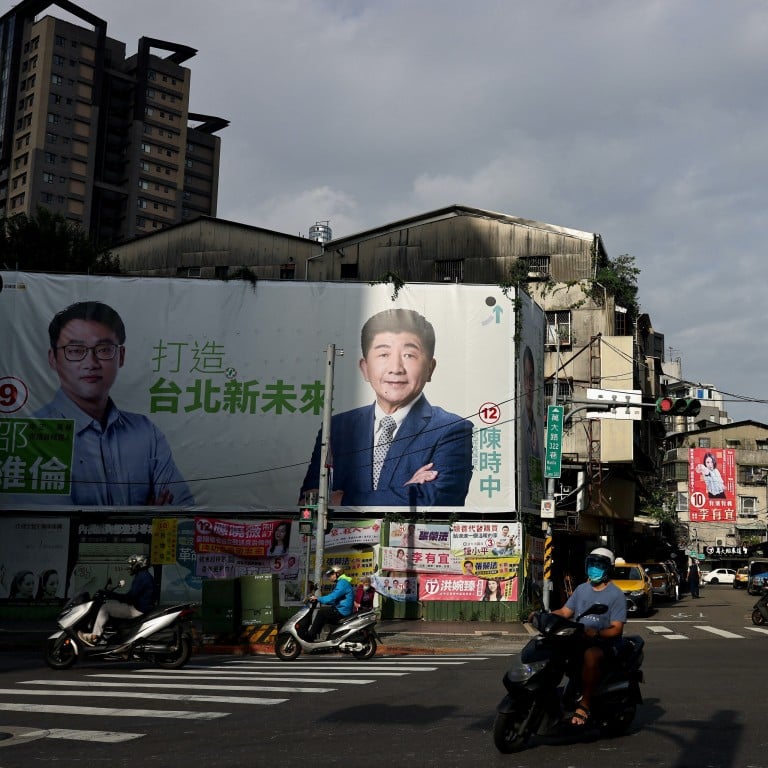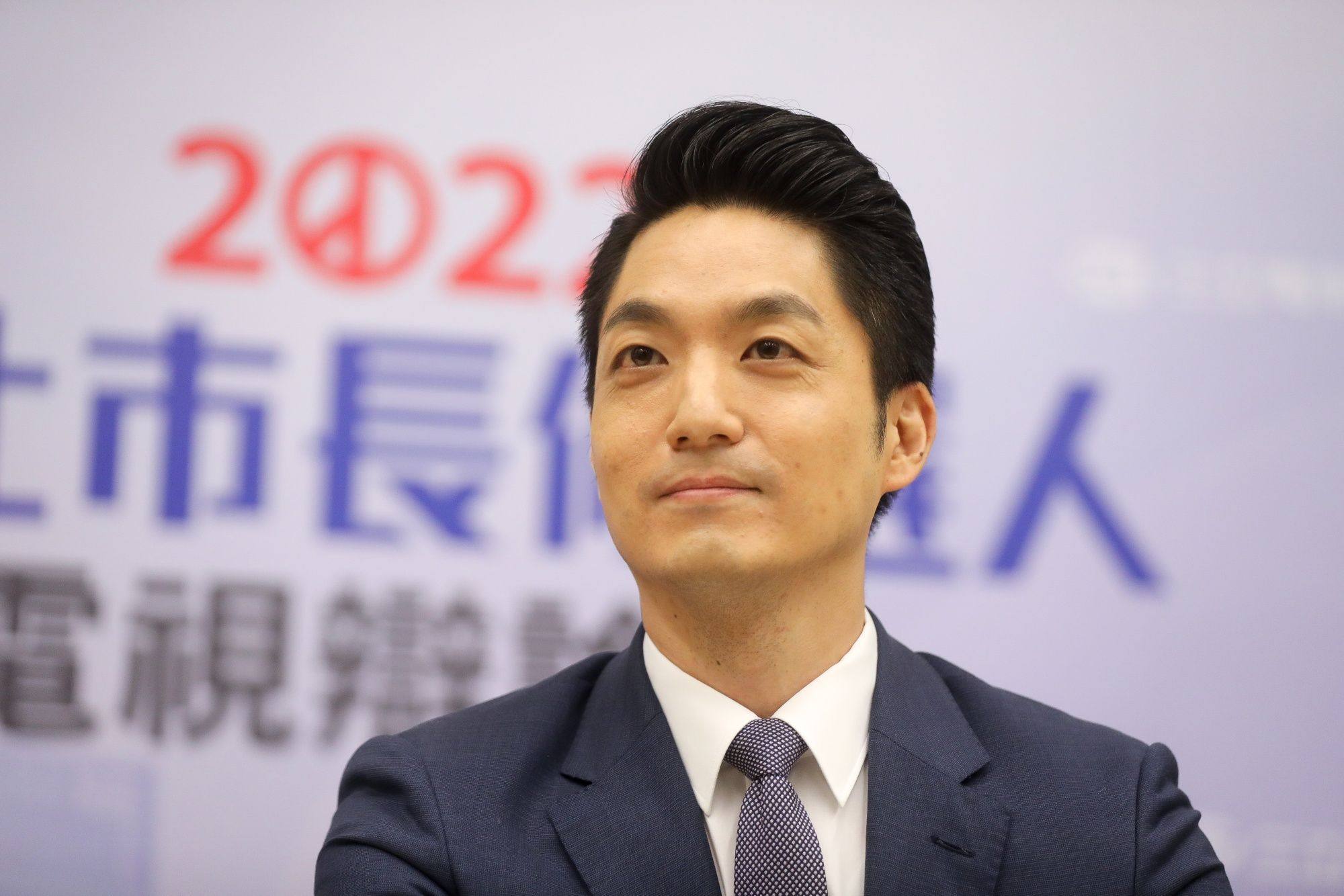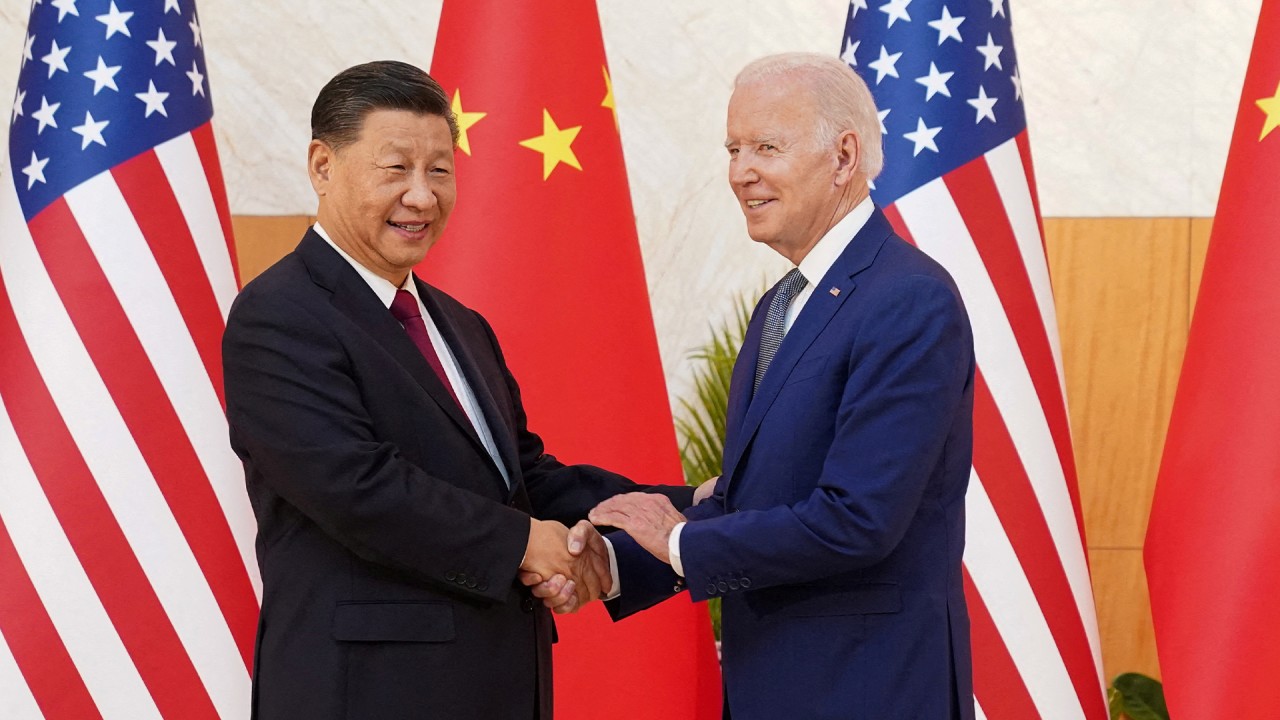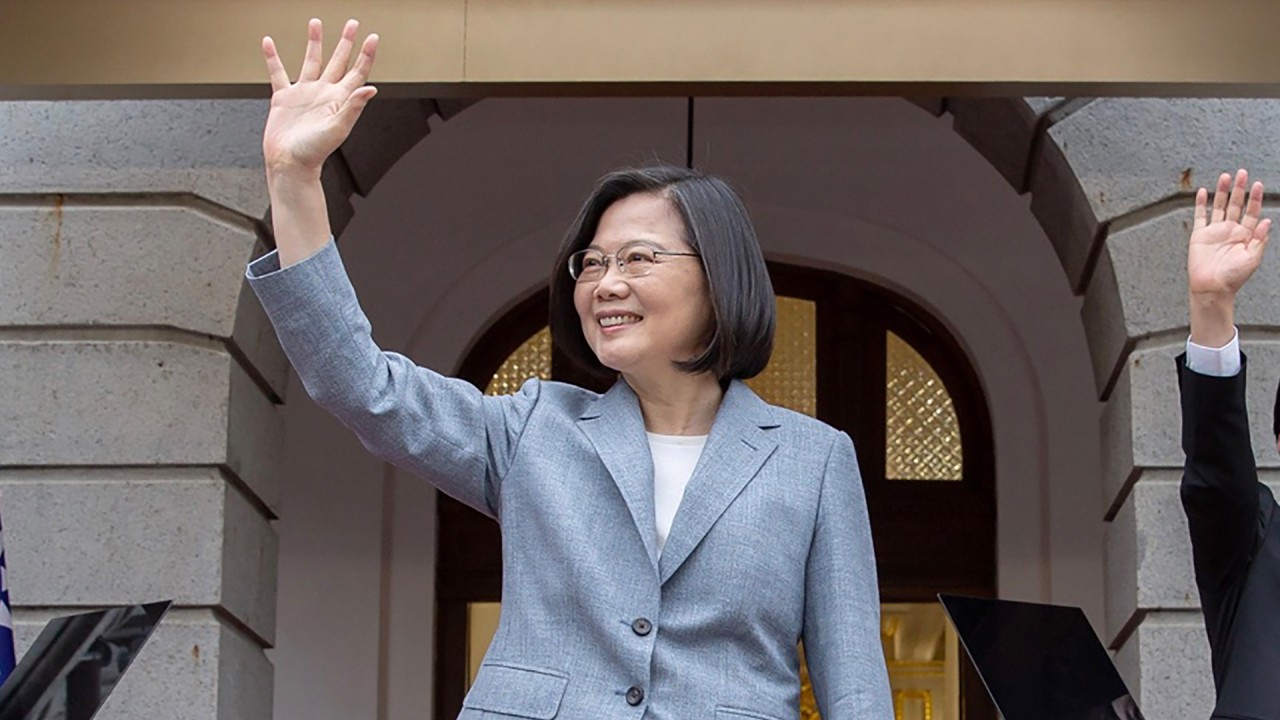
Taiwan’s local election contenders line up with one eye on 2024 presidential poll
- DPP, KMT and other parties see municipal and county races as a gauge of chances when President Tsai Ing-wen steps down
- Races have been marred by mudslinging, with candidates and their parties accusing each other of either bribery or lacking integrity
The results of the local polls on Saturday will be used to gauge which political parties have the best chance of winning the island’s leadership in 2024.
Similarly, the main opposition Kuomintang is seeking to expand control to several other cities and counties from the 14 it now holds and increase its chances of challenging the DPP for the island’s top post.
The smaller opposition Taiwan People’s Party (TPP), founded by outgoing Taipei mayor Ko Wen-je in 2019, has fielded candidates to run for mayoral posts in Taoyuan, Hsinchu and Yilan. Ko is seeking to bolster his party’s influence to pave the way for a presidential bid in 2024, according to local media reports.
Of the six municipalities, the KMT holds New Taipei City and Taichung in central Taiwan, while the DPP has Taoyuan in northern Taiwan and Tainan and Kaohsiung in the south. The mayoral post in Taipei will be vacant after Ko steps down in late December, and the same goes for the post in Taoyuan after outgoing mayor Cheng Wen-tsan ends his two four-year terms.
“If we are able to win the capital, it will be a victory for us, and if we are able to win both Taipei and Taoyuan, it will mean a big victory for us,” a DPP legislator said on condition of anonymity.
The legislator said the DPP would have no problem keeping Tainan and Kaohsiung, which had long been traditional strongholds of the party.
Xi-Biden talks: Taiwan is still the big red line in China-US relations
The DPP is facing tough challenges from the KMT and the TPP to keep control of Taoyuan, with Cheng Wen-tsan stepping down. He admitted that a plagiarism scandal involving former DPP candidate Lin Chih-chieh had damaged the party, forcing his replacement, legislator Cheng Yun-peng, to fight an uphill battle.
The KMT, has its eye on victory in three municipalities, with a target of capturing more than 16 of the 22 cities and counties, according to Lee De-wei, the KMT caucus head in the legislature.
“Taipei is the focus in our showdown with the DPP,” Lee said, adding that winning the city was the KMT’s primary goal to regain its influence in Taipei.
The Taipei mayoral post has long been considered the best stepping stone to the presidency, with former presidents Lee Teng-hui, Chen Shui-bian and Ma Ying-jeo all serving as Taipei mayor before taking the island’s top post.

Huang Shan-shan, 53, deputy Taipei mayor and a member of the pro-unification People’s First Party, is running as an independent in Taipei.
In line with Taiwan’s election law, Tuesday was the last day the results of election-related opinion polls could be published, and most surveys up to that date showed Chiang leading both Chen and Huang.
“Those opinion polls may not necessarily reflect the facts, as a number of young people who do not care much about politics did not indicate their choices in the surveys. Whoever is able to canvass support from this group may have a better chance in the race,” said Wang Yeh-lih, a political science professor at National Taiwan University.
He said candidates’ promises to improve the city’s development and citizens’ well-being were also decisive factors.
Like previous elections, the local races have been marred by mudslinging. Some candidates and their parties have accused each other of either bribery or lacking integrity.
While the vote for mayors and councillors is nominally about domestic issues, a spotlight shines on island allegiance – who loves Taiwan and counters Beijing more – in the races.
President Tsai has labelled the elections a campaign to “safeguard the existence of Taiwan”.
“I want to tell you all that the existence of Taiwan and Taiwanese people’s insistence on freedom and democracy are not a provocation to anyone,” she said in a fiery rally in Taipei on November 12, referring to persistent military threats from Beijing.
Tsai said that as president she must strive to let Taiwan still be the Taiwan of all Taiwanese people.
KMT chairman pitches party as stabilising presence between Beijing and Taiwan
In another rally in late October, she said the ballots cast by the voters “determine whether we should continue our [anti-Beijing] policy, and more importantly whether the international community will continue to support Taiwan”.
“Comments like that are a kind of scare tactics aiming to canvass voters’ support. But the local elections are not a national poll that needs to consider the ‘countering China to safeguard Taiwan’ factor,” said Michael You Ying-lung, chairman of Taiwanese Public Opinion Foundation.
“Voters are not fools. Using this scare tactic reflects that the ruling party is running out of [an] effective campaign scheme. Honestly speaking, as this tactic has been played up over and over again, most voters would not buy it now.”



